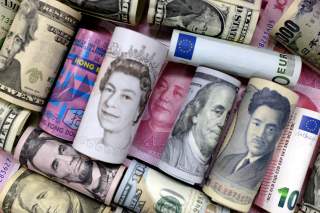How We Can Stop Global Money Laundering
The reality of the modern money laundering business is that it has become part of today’s “financial capitalism.” We must change this reality.
Moreover, and this is extremely important for the revitalization of the global civil society, the anti-corruption activists across the globe would, for the first time, get a proper global partner whom they might appeal. Organizations like the Organized Crime and Corruption Reporting Project, not to mention less renown national groupings who will submit a substantial number of duly verified claims, might get special representation with the court. Furthermore, people concerned with growing corruption around the world will get additional reasons for uniting and working together since they will get a clear addressee for their work. I believe that this issue cannot be overestimated: In most countries plagued with rampant corruption, citizens remain passive first of all because they are discouraged by the lack of response from both the national regulators, law enforcement agencies, and even from international investigators since corrupt officials possessing either accounts in Panama or real estate in London don’t feel any pressure inside their own countries.
The last advantage of the International Financial Court might become its records which—unlike the records and databases of either Interpol or national law enforcers—will be open to the public and electronically accessible from any place in the world. This would contribute to the emergence of the first truly global database of corrupt officials, doubtful jurisdictions, banks involved in processing “dirty money,” as well as the law offices and attorneys most closely linked to money laundering operations. Such an open database may, as I believe, erode the very foundations of the secrecy that allows the international corruption and money laundering to flourish in today’s world.
To make one final observation, I would contend that governments in all nations across the world will face very powerful pressure from their citizens to sign the International Financial Court’s statute and to become the part of that global body. In the case that the largest global powers—the United States, China, and Russia—are not participating in the International Criminal Court, it will be much more difficult for those authorities to explain to their subjects why they should remain outside the new system, especially if they are pretending they are doing their best to eliminate corrupt practices inside their own borders. It might be framed as the debate over war crimes—which in many nations are believed to be a “natural part” of the respective countries’ “real sovereignty” (a term widely used in Russia and coined by former Deputy Defense Minister Andrei Kokoshin)—but the negative attitude to corruption and the misuse of power transcends national borders and ideological fractures. Thus, the dissenters in many parts of the globe will get a very simple “foothold,” on which they might hope to make things change.
Alexander Lebedev, a Russian entrepreneur and philantropist, is the primary shareholder of the National Reserve Corporation in Moscow and the financial backer of both The Independent and The London Evening Standard in London.
Image: Rueters

